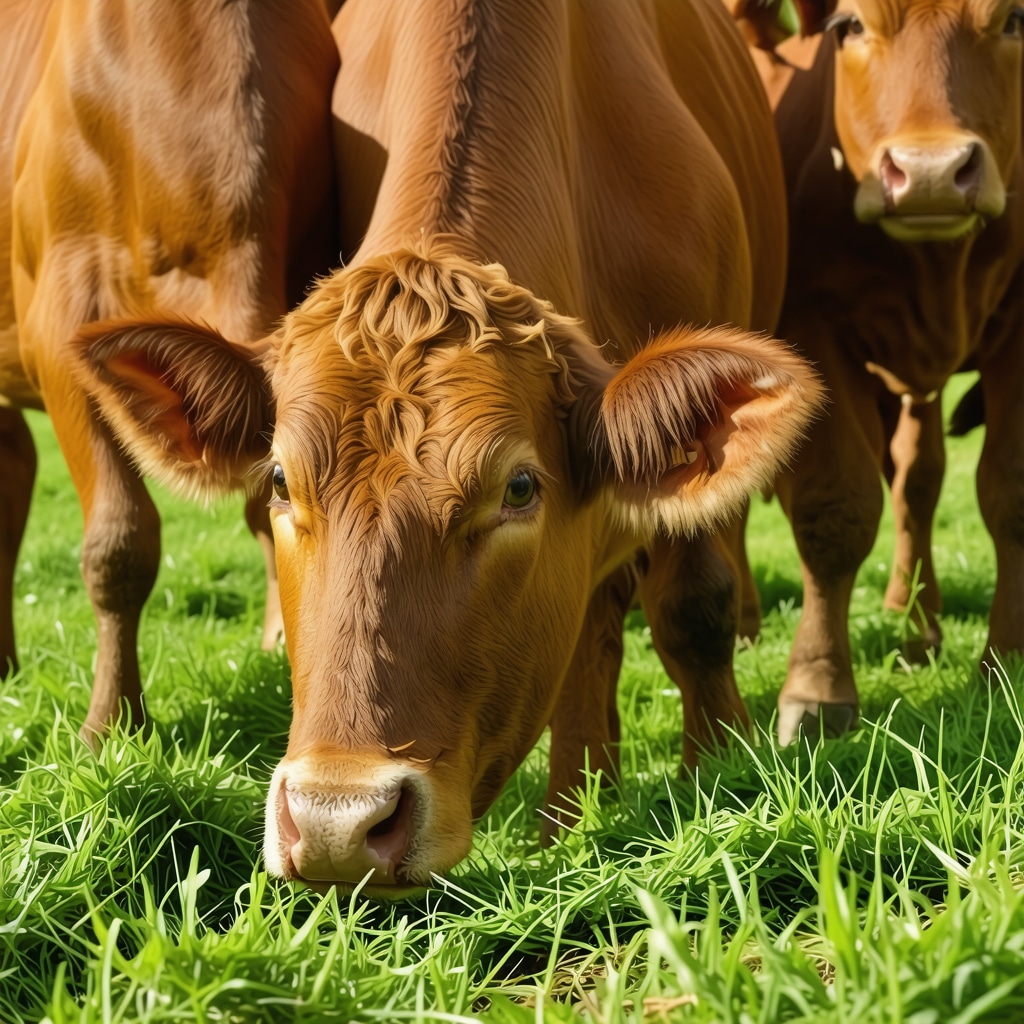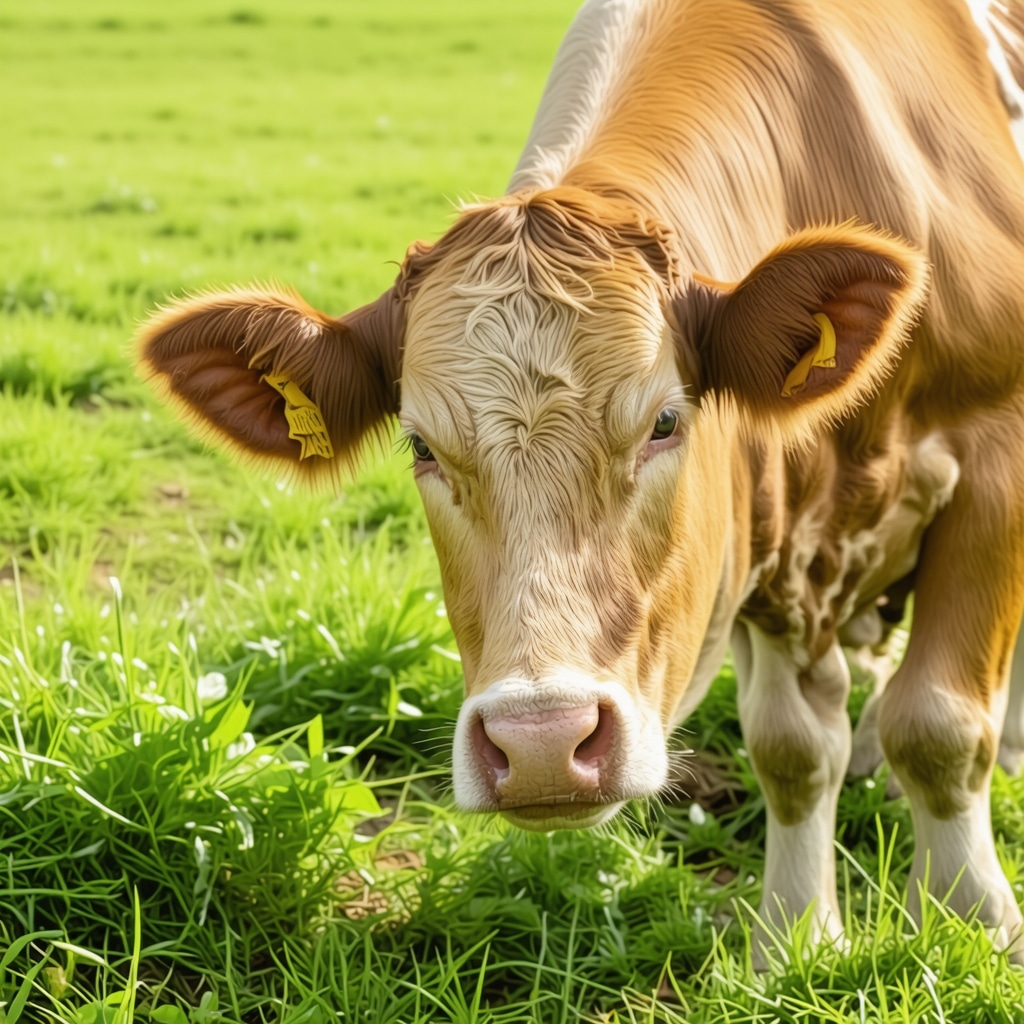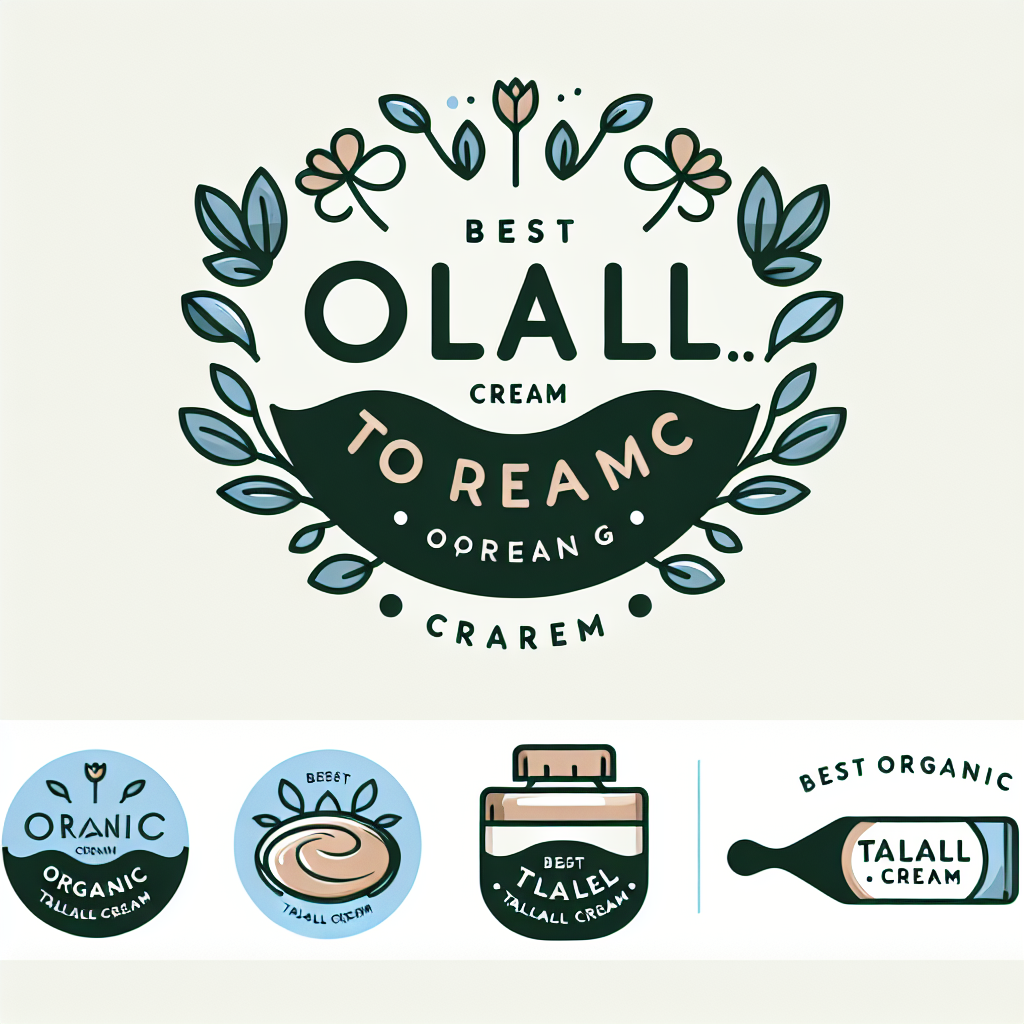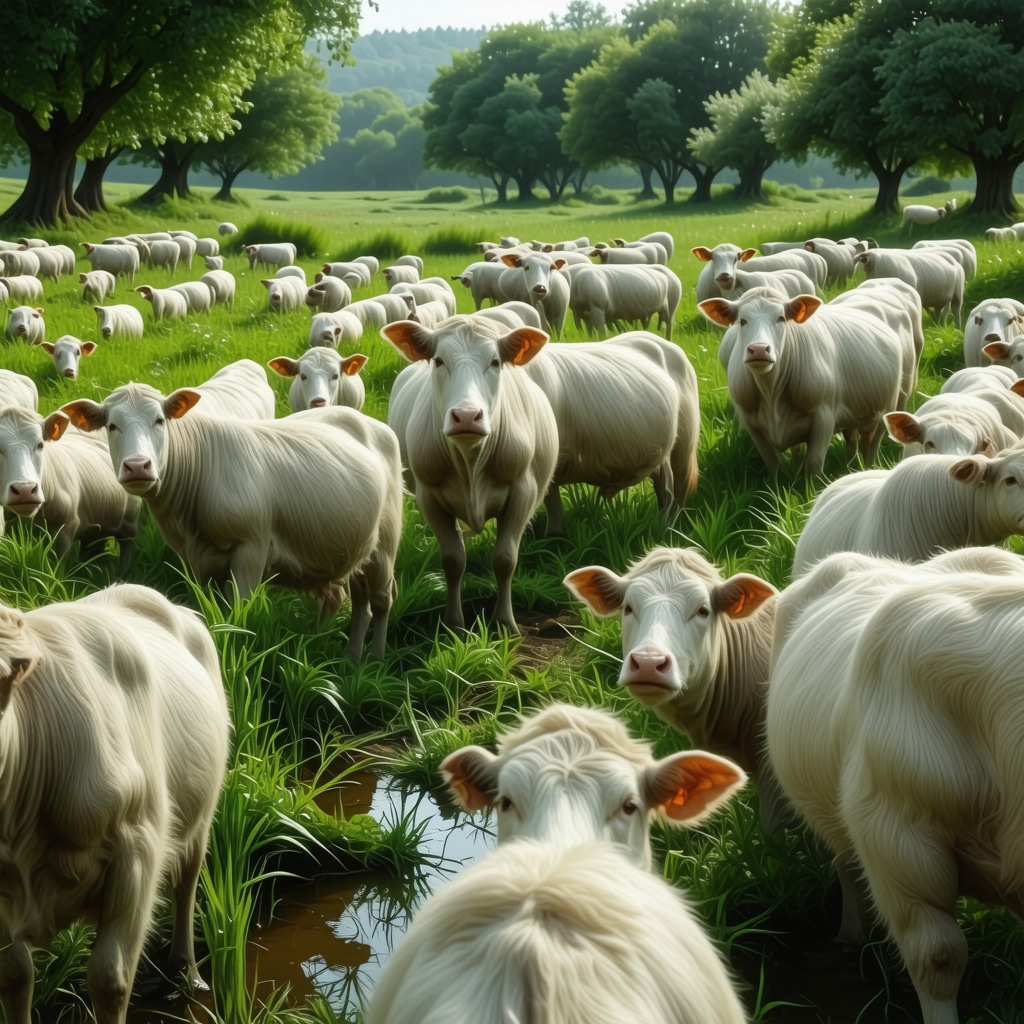The Tallow Truth: Why Ethical Sourcing Matters More Than Ever
Imagine a world where your skincare routine not only makes you glow but also supports sustainable and ethical practices. Sounds like a fairy tale? Not anymore! With the rising popularity of animal-based ingredients like tallow, it’s crucial to understand where your products come from and how they’re made. As someone who’s been diving into the depths of natural skincare, I can tell you that sourcing ethically isn’t just a trend—it’s a necessity for true purity and sustainability.
What’s the Big Deal About Ethical Sourcing?
Let’s face it: not all tallow is created equal. Some brands cut corners, sourcing from questionable farms or using cheap, low-quality fats. But for those of us craving authentic, clean beauty, the focus is on grass-fed, ethically raised animals and transparent supply chains. Why? Because ethically sourced tallow isn’t just about morality; it directly impacts the quality of your skincare. Higher-quality tallow contains more beneficial nutrients, like conjugated linoleic acid (CLA) and omega-3s, which are powerhouse ingredients for skin healing and nourishment. For an eye-opening deep dive, check out this insightful piece on the rising trend of tallow in clean beauty.
How to Spot Truly Pure & Sustainable Tallow
So, how do you, the savvy skincare enthusiast, identify the cream of the crop? First, look for brands that prioritize transparency—think clear labeling and open disclosure about their sourcing practices. Certified organic and grass-fed labels are good indicators, but don’t stop there. Dig a little deeper: find out if the farms follow ethical animal husbandry and sustainable grazing practices. A quick tip? Many reputable brands partner with local farms that adhere to humane standards, which you can verify on their websites or by reaching out directly. Remember, the best tallow is harvested from animals raised on pasture, not in cramped feedlots.
Is Your Tallow Truly Ethical? A Question Worth Asking
Here’s a thought: are we just blindly trusting labels, or are we demanding transparency? As consumers, our choices influence industry standards. By supporting brands committed to ethical sourcing, we contribute to a more sustainable world. If you want to explore trustworthy options, check out this guide on finding pure tallow products online.
Ultimately, choosing ethically sourced tallow is about more than just your skin—it’s a statement of respect for the animals, the planet, and your health. So, next time you browse for skincare, ask yourself: Is this product truly pure, sustainable, and ethically sourced? Your skin—and the world—will thank you.
And hey, I’d love to hear your thoughts! Drop a comment below or share your favorite ethically sourced skincare brands. Let’s keep the conversation going and push for a cleaner, kinder beauty industry.
The Ethical Dimension: How Transparency Shapes Your Tallow Skincare Choices
In our quest for pure and effective skincare, the story behind the ingredients we choose is more vital than ever. Ethical sourcing isn’t just a buzzword—it’s the backbone of trustworthy natural skincare brands. When it comes to animal-derived ingredients like tallow, transparency about sourcing practices becomes a crucial factor for discerning consumers who want to align their beauty routines with their values.
Why Transparency Is the New Gold Standard in Skincare
As consumers grow more conscious, they demand clarity—no more opaque labels or vague claims. The best brands are now providing detailed insights into their supply chains, from farm to jar. This level of transparency ensures that the tallow used is ethically sourced, grass-fed, and free from harmful additives or low-quality fats. By choosing brands that prioritize honesty, you support sustainable farming practices and animal welfare, which ultimately translates into higher-quality, nutrient-rich tallow. For an in-depth understanding of the importance of transparency, see this comprehensive guide.
How Do You Verify Ethical Sourcing When Shopping for Tallow?
While labels like “organic” and “grass-fed” are helpful, they can sometimes be misused or lack detailed backing. The savvy skincare enthusiast will dig deeper—researching the brands’ supply chains, seeking out certifications, and reading customer reviews. Reputable companies often share videos or farm visits to showcase their humane and sustainable practices. Additionally, third-party certifications from organizations like the USDA Organic or Animal Welfare Approved can serve as trustworthy indicators. It’s also worth consulting resources such as this article about identifying genuine grass-fed tallow brands.
Are We Truly Supporting Ethical Practices or Just Buying a Label?
This question challenges us to consider whether we’re moving beyond surface-level labels to demand real accountability. Are brands transparent about their sourcing stories? Do they actively engage with farmers and ensure animal welfare standards? When you support truly ethical brands, your purchasing power encourages a shift toward more humane and sustainable farming practices. It also pushes the industry to uphold higher standards, fostering a future where clean beauty is synonymous with integrity. To discover trusted sources, explore this resource.
Remember, your choices have ripple effects—supporting brands committed to transparency helps create a more ethical and sustainable skincare industry. So, next time you browse, ask yourself: Is this product genuinely sourced ethically, or is it just a marketing ploy? Your skin and conscience will thank you.
Want to share your thoughts on ethical sourcing or recommend brands you trust? Drop a comment below or share this article with friends who care about conscious beauty. Together, we can drive change toward a more transparent and compassionate skincare world.
Unlocking the Secrets of Ethical Tallow Sourcing for Superior Skincare
In the ever-evolving world of natural skincare, understanding the intricacies of ingredient sourcing elevates your routine from mere beauty to a statement of conscious consumption. Tallow, once considered a traditional fat, has re-emerged as a powerhouse ingredient—provided it is sourced ethically and sustainably. But what does true ethical sourcing entail, and how can you, as a discerning consumer, ensure your skincare products align with your values?
The Deep Dive into Ethical Sourcing: Beyond the Surface
Ethical sourcing of tallow involves a complex matrix of factors: animal welfare, environmental impact, supply chain transparency, and quality assurance. It’s not enough to see labels like “grass-fed” or “organic”—these claims must be backed by rigorous certifications and verifiable practices. For instance, the Animal Welfare Approved certification guarantees that animals are raised humanely and sustainably, directly influencing the quality and ethical integrity of the tallow derived from them. Additionally, sustainable grazing practices prevent overgrazing, soil degradation, and promote biodiversity, which are essential for long-term environmental health.
How Do Certifications Guarantee Ethical Sourcing?
Third-party certifications serve as the gold standard in verifying claims. The USDA Organic certification, for example, stipulates strict standards for animal husbandry, feed, and land management, ensuring that the tallow is derived from animals raised without synthetic hormones or antibiotics. Similarly, the Sustainable Tallow Initiative promotes regenerative farming practices, emphasizing soil health and ecosystem balance, which ultimately enhance the nutrient profile of the tallow. These certifications are not just labels—they are benchmarks of accountability and transparency, vital for informed purchasing decisions.

The Nuances of Traceability: Ensuring Your Tallow Supports Ethical Practices
Traceability is the cornerstone of ethical sourcing. It involves tracking the ingredient from farm to finished product, ensuring each step adheres to high standards. Advanced supply chain management tools, such as blockchain technology, are increasingly employed by reputable brands to provide transparent, tamper-proof records of ingredient origins. When shopping, inquire about the supply chain transparency of your preferred brands—do they openly share farm visits, supplier audits, or third-party verification reports? Such transparency not only fosters trust but also encourages better industry practices.
What Are the Challenges in Verifying Ethical Sourcing in Practice?
Despite the availability of certifications and supply chain transparency, challenges persist. The global nature of ingredient sourcing means that some brands may rely on intermediaries with limited oversight, risking lapses in ethical standards. To navigate this, expert consumers should look for brands that actively engage in farm visits, publish detailed sourcing stories, and participate in industry audits. Additionally, engaging with community forums and industry reports can shed light on the reputation and reliability of brands claiming ethical practices.
Supporting truly ethical brands is more than a purchase—it’s a commitment to fostering sustainable farming, humane animal treatment, and environmental stewardship. Your choices ripple outward, encouraging the industry to uphold higher standards and innovate sustainable practices. As you explore your next skincare product, ask yourself: Does this product champion transparency and integrity? The impact of your decision extends beyond your skin and into the future of sustainable beauty.
For those eager to deepen their knowledge, I recommend exploring this comprehensive resource on sustainable and ethical ingredient sourcing. Your informed choices can drive meaningful change—one ethically sourced tallow product at a time. Share your insights or questions in the comments below; let’s build a community dedicated to transparency, sustainability, and radiant, ethically sourced skin.
Unveiling the Hidden Layers of Ethical Tallow Sourcing: A Closer Look at Industry Integrity
While many consumers are aware of the importance of ethical sourcing, few realize the intricate complexities involved in truly transparent and sustainable tallow procurement. Going beyond certifications, expert brands are now employing innovative traceability systems—such as blockchain technology—to meticulously track each batch from farm to formulation. This level of granularity not only guarantees animal welfare and environmental sustainability but also elevates the overall quality of the final product. For instance, companies partnering with local regenerative farms demonstrate a commitment to soil health and biodiversity, which directly enhances the nutrient density of their tallow. Animal Welfare Approved certification remains a gold standard, yet emerging technologies are setting new benchmarks for accountability.
How Do Advanced Traceability Tools Reinforce Ethical Integrity in the Tallow Supply Chain?
Blockchain and digital ledger systems enable brands to provide tamper-proof records, offering consumers unparalleled transparency. These tools verify not only the origin but also the humane treatment and sustainable practices employed at each step. As a savvy consumer, asking for detailed sourcing reports or farm visit videos can be a game-changer in differentiating genuinely ethical brands from superficial claims. Additionally, engaging with third-party audits and certifications, like the Sustainable Tallow Initiative, helps solidify trust and ensures practices align with industry-leading standards.

What Are the Critical Challenges in Verifying Ethical Practices Across Global Supply Chains?
Despite technological advancements, verifying ethical standards remains a formidable challenge, especially when sourcing occurs across multiple countries with varying regulations. Suppliers might employ intermediaries with limited oversight, risking lapses in animal welfare or environmental protocols. To navigate this, consumers should prioritize brands that conduct regular farm visits, publish comprehensive sourcing narratives, and participate in independent industry audits. Robust documentation, coupled with transparent communication, exemplifies a brand’s commitment to integrity. Moreover, staying informed through industry reports and community forums can help identify trustworthy sources and expose potential ethical lapses, fostering a more accountable market.
How Can Consumers Advocate for Higher Standards Beyond Purchase Decisions?
Advocacy extends beyond individual buying habits. Engaging with brands through feedback, supporting industry watchdogs, and participating in awareness campaigns can catalyze meaningful change. Sharing knowledge about the importance of traceability and certifications helps educate others, amplifying the movement toward ethical transparency. For those eager to deepen their understanding, this comprehensive resource offers insights into sustainable ingredient sourcing practices. Your informed choices and vocal advocacy are powerful tools in shaping a future where natural skincare embodies integrity at every level.
Expert Insights & Advanced Considerations
1. The Role of Regenerative Farming in Tallow Quality
Regenerative farming practices not only enhance soil health but also improve the nutrient density of tallow. Experts emphasize that sourcing from farms that prioritize soil regeneration results in higher-quality, more nutrient-rich fats that benefit skin health and integrity.
2. Blockchain Technology as a Transparency Tool
Innovative blockchain solutions are increasingly adopted by top brands to ensure complete traceability of tallow from farm to product. This technology provides consumers with tamper-proof records, reinforcing trust in the ethical sourcing process.
3. The Impact of Animal Welfare Certifications
Certifications like Animal Welfare Approved set industry standards for humane treatment, ensuring that tallow is derived from ethically raised animals. Experts advocate for prioritizing such certifications to align skincare choices with ethical values.
4. Advanced Testing for Nutrient Content
Laboratory testing for conjugated linoleic acid (CLA) and omega-3 levels ensures the tallow’s potency and purity. This scientific approach helps consumers select products with optimal skin-healing properties.
5. The Future of Sustainable Supply Chains
Emerging models focus on local, small-scale farms that employ sustainable grazing, reducing carbon footprints and supporting biodiversity. Experts see this as a pivotal shift toward truly ethical and environmentally friendly sourcing.
Curated Expert Resources
- Animal Welfare Approved: Certification guaranteeing humane animal treatment and sustainable practices, essential for ethical tallow sourcing.
- Blockchain Traceability Platforms: Innovative tools used by brands to provide transparent ingredient origins, fostering consumer trust.
- Sustainable Tallow Initiative: Industry-led programs promoting regenerative farming and soil health, crucial for high-quality tallow production.
- Lab Testing Labs: Scientific facilities that analyze nutrient profiles, ensuring product efficacy and safety.
- Industry Reports on Ethical Sourcing: In-depth analyses of global supply chain practices, helping consumers make informed choices.
Final Expert Perspective
Deep expertise reveals that the future of natural skincare hinges on the integrity of ingredient sourcing, especially for animal-derived ingredients like tallow. By integrating regenerative farming, blockchain transparency, and rigorous certification standards, we can elevate both the quality and ethical standards of skincare products. As knowledgeable consumers and industry insiders, we should advocate for and support brands that prioritize these advanced practices, ensuring our routines are both effective and aligned with our values. For those committed to mastery in clean beauty, exploring this comprehensive resource is an excellent step toward deeper understanding. Engage actively—ask questions, share insights, and push the industry toward genuine transparency and sustainability.


I recently started paying closer attention to the sourcing of ingredients in my skincare, especially animal-based ones like tallow. It’s eye-opening to realize how much the quality and ethics behind sourcing can influence not only the product’s efficacy but also our impact on the environment and animal welfare. I appreciate the detailed insights in this post about certifications like Animal Welfare Approved and the importance of traceability systems such as blockchain. I’ve found that brands providing transparent farm visits and sourcing stories help build trust. However, I wonder how feasible it is for smaller brands to implement such advanced traceability measures without significantly increasing costs. Has anyone here had experience with balancing ethical sourcing with affordability? I believe consumer demand will push more brands to adopt these higher standards, but it’s essential to understand the challenges as well. Honestly, supporting brands committed to regenerative farming and transparent practices feels like a vital step toward meaningful change in the skincare industry.